8+ Sample High School Coach Contract
-
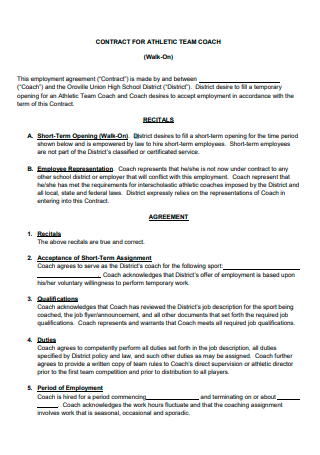
High School Athletic Team Coach Contract
download now -
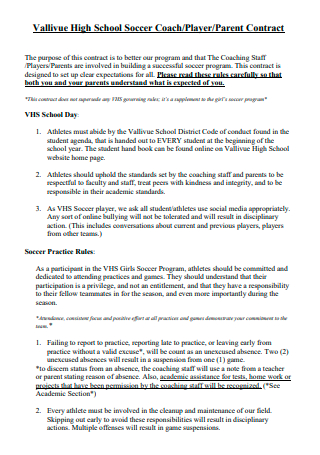
High School Soccer Coach Contract
download now -
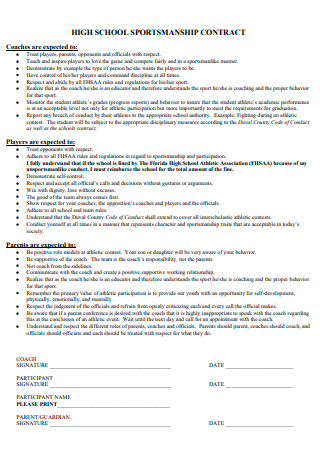
High School Sportsmanship Coach Contract
download now -
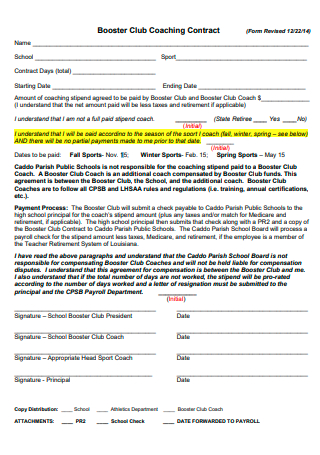
High School Club Coaching Contract
download now -
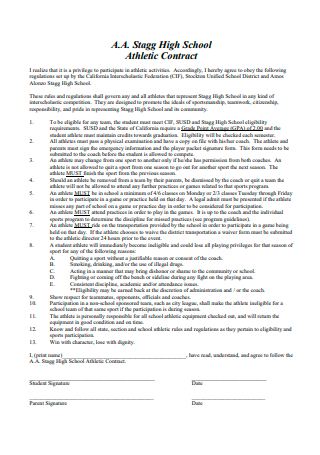
High School Athletic Coach Contract
download now -
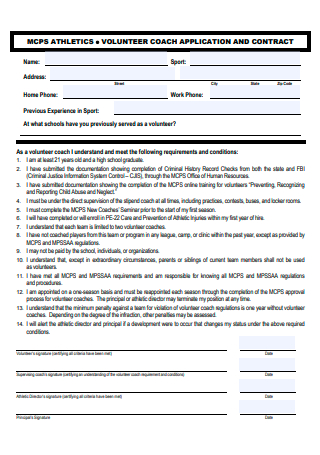
High School Volunteer Coach Application Contract
download now -
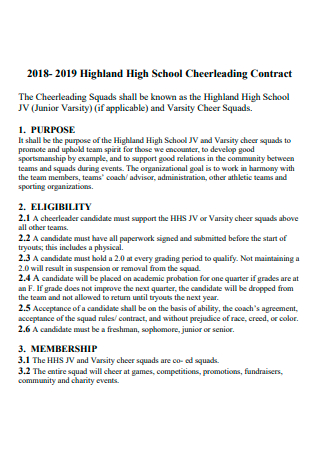
High School Coach Contract in PDF
download now -
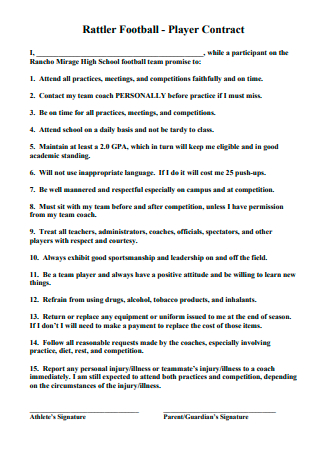
High School Football Coach Contract
download now -
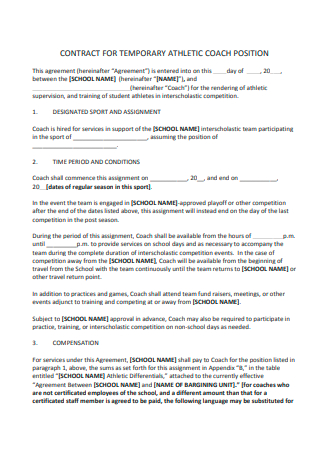
High School Temporary Athletic Coach Position Contract
download now
FREE High School Coach Contract s to Download
8+ Sample High School Coach Contract
What Is a High School Coach Contract?
Good Qualities of a High School Coach
Steps in Writing a High School Coach Contract
FAQS
What Is a High School Coach?
Is Making a High School Coach Contract Important?
How Long Are High School Coaching Contracts?
What Is a High School Coach Contract?
A high school coach contract is an agreement for the hiring of a coach to oversee a school sports club or team. The contract must specify the coach’s roles and tasks. It should include their qualifications as well as a job description. Since some coaches with teaching licenses also teach in high school. The contract must also specify their wage, probation term, and length of employment. It should also specify what constitutes grounds for termination.
A coach contract may describe the exact functions and responsibilities of the position. This entails utilizing their credentials and employing specific strategies. A coach may also have a contract with a school that requires him or her to produce outcomes. Some high school coaches are only hired for a single season or as a fill-in. These specifics must be stated forth in the contract.
Good Qualities of a High School Coach
While anyone may become a coach, not everyone can become a good coach. It all comes down to principles, experience, and solid teaching abilities. It’s all about encouraging your kids that their difficulties can be solved. Contracts for high school coaches are also teacher contracts. Some coaches may be able to teach a subject in a classroom context. However, some coaches are only hired for one position. Nevertheless, they must all have good attributes to appropriately guide their students. And what exactly are they? Let’s take a look below to find out.
Steps in Writing a High School Coach Contract
A high school teacher employment contract could include being a coach. A coach contract would be identical. All you must do is cover all of the relevant contents. Like the steps outlined below.
-
Step 1. Qualification
It is critical that the coach has the necessary qualifications. Incompetent coaches can be damaging to the success of an athletic team. It is vital to acquire experience that can aid improve performance and skills. That is the school’s purpose in hiring coaches. At the end of the day, results matter. If the coach will also be teaching, they must have a license and the relevant education. The contract could specify the number of years of experience as well as the general attributes that they expect a coach to possess.
-
Step 2. Duties
A coach can be many different things. They may play several roles. Their primary responsibility is to raise a competitive team. It could entail undergoing training and employing unusual approaches. If the school or hiring committee has specific constraints for a coach’s duties, these must be stated. It must be made clear to the other party that they cannot do everything they want. Permission may be required. A coach’s tasks include, for example, coaching a team to victory. Or bringing about measurable solutions.
-
Step 3. Period of Employment
Contractual high school coaches work for a shorter length of time. Typically, they are only hired for the semester or until the end of the game season. Some high school coaches work for a longer period of time and have a more regular arrangement. Some coaches, unlike teachers, are not required to attend school every day. As a result, the length of their work hours and employment time must be specified based on what is required.
-
Step 4. Practice Rules
Practice rules apply to a variety of sports and hobbies. A coach may be required to follow these standards and focus his instruction on them. Parents may be difficult to please and may object to a modification. To minimize issues, the school or administration would usually arrange it ahead of time. A coach may have their own set of practice guidelines at times. So, if they have to abide by something rather than create it, it must be expressed in the contract.
-
Step 5. Salary
The compensation is an important part of every teaching contract. Put another way, the fee required to obtain the services of a coach. If there is a probationary term, it must be stated. Since regular employees may be paid a little more. There is also a distinction between full-time and part-time workers when it comes to the benefits they will receive.
-
Step 6. Date and Signature
To be legally binding, every contract must be signed. It acknowledges that both sides have reached an agreement. It is also necessary to note the date when the contract is signed.
FAQS
What Is a High School Coach?
A high school coach’s job is to train or lead students in the development of their skills in a high school sport. This could include using instructional methods and ideas to develop an effective training program. They must also ensure that their students do not suffer academically as a result of participating in sports. Overall, they are responsible for taking care of and advising students on sports-related topics. Thus, they must have the adequate understanding to respond to queries.
Is Making a High School Coach Contract Important?
A contract is required regardless of how short a coach’s employment is. That is because they can be bound by the terms of their contract. It also protects the party in the event of a contract breach. It also helps to ensure that they are paid for their services. A contract specifies the period of employment and the responsibilities of a coach.
How Long Are High School Coaching Contracts?
It varies a lot. Some have temporary athletic coach contracts that might range from three months to a year. Some would have seasonal contracts that would expire immediately when the sport season ended. Others have long-term contracts that can last up to ten years or more. Of course, there is less room for negotiating, but it ensures a steady job.
Occasionally, the best teacher may be in a form of a high school coach. It would be a coach who is good at communicating as well as having the requisite knowledge and skill for the sport. A coach who strives to bring out the best in their students is deserving of a contract. Download high school sport contract templates to get started right away!
